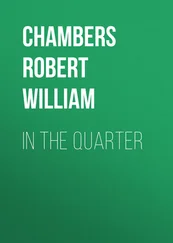Robert Chambers - The Maids of Paradise
Здесь есть возможность читать онлайн «Robert Chambers - The Maids of Paradise» — ознакомительный отрывок электронной книги совершенно бесплатно, а после прочтения отрывка купить полную версию. В некоторых случаях можно слушать аудио, скачать через торрент в формате fb2 и присутствует краткое содержание. Жанр: foreign_prose, на английском языке. Описание произведения, (предисловие) а так же отзывы посетителей доступны на портале библиотеки ЛибКат.
- Название:The Maids of Paradise
- Автор:
- Жанр:
- Год:неизвестен
- ISBN:нет данных
- Рейтинг книги:5 / 5. Голосов: 1
-
Избранное:Добавить в избранное
- Отзывы:
-
Ваша оценка:
- 100
- 1
- 2
- 3
- 4
- 5
The Maids of Paradise: краткое содержание, описание и аннотация
Предлагаем к чтению аннотацию, описание, краткое содержание или предисловие (зависит от того, что написал сам автор книги «The Maids of Paradise»). Если вы не нашли необходимую информацию о книге — напишите в комментариях, мы постараемся отыскать её.
The Maids of Paradise — читать онлайн ознакомительный отрывок
Ниже представлен текст книги, разбитый по страницам. Система сохранения места последней прочитанной страницы, позволяет с удобством читать онлайн бесплатно книгу «The Maids of Paradise», без необходимости каждый раз заново искать на чём Вы остановились. Поставьте закладку, и сможете в любой момент перейти на страницу, на которой закончили чтение.
Интервал:
Закладка:
With a paternal tap on my head, he drew on his scarlet, gold-banded cap, tightened the check strap, and walked out of the room. Down-stairs I heard him cursing because his horse had been shot. I never saw him again.
Dozing feverishly, hearing the cannon through troubled slumber, I awoke toward noon quite free from any considerable pain, but thirsty and restless, and numbed to the hips. Alarmed, I strove to move my feet, and succeeded. Then, freed from the haunting terror of paralysis, I fell to pinching my legs with satisfaction, my eyes roving about in search of water.
The room where I lay was in disorder; it appeared to be completely furnished with well-made old pieces, long out of date, but not old enough to be desirable. Chairs, sofas, tables were all fashioned in that poor design which marked the early period of the Consulate; the mirror was a fine sheet of glass imbedded in Pompeian and Egyptian designs; the clock, which had stopped, was a meaningless lump of gilt and marble, supported on gilt sphinxes. Over the bed hung a tarnished canopy broidered with a coronet, which, from the strawberry leaves and the pearls raised above them, I took to be the coronet of a count of English origin.
The room appeared to be very old, and I knew the house must have stood for centuries somewhere along the single street of Morsbronn, though I could not remember seeing any building in the village which, judging from the exterior, seemed likely to contain such a room as this.
The nearer and heavier cannon-shots had ceased, but the window-sashes hummed with the steady thunder of a battle going on somewhere among the mountains. Knowing the Alsatian frontier fairly well, I understood that a battle among the mountains must mean that our First Corps had been attacked, and that we were on the defensive on French soil.
The booming of the guns was unbroken, as steady and sustained as the eternal roar of a cataract. At moments I believed that I could distinguish the staccato crashes of platoon firing, but could not be certain in the swelling din.
As I lay there on my long, cushioned chair, burning with that insatiable thirst which, to thoroughly appreciate, one must be wounded, the door opened and a Turco soldier came into the room and advanced toward me on tip-toe.
He wore full uniform, was fully equipped, crimson chechia, snowy gaiters, and terrible sabre-bayonet.
I beckoned him, and the tall, bronzed fellow came up, smiling, showing his snowy, pointed teeth under a crisp beard.
“Water, Mustapha,” I motioned with stiffened lips, and the good fellow unslung his blue water-bottle and set it to my burning mouth.
“Merci, mon brave!” I said. “May you dwell in Paradise with Ali, the fourth Caliph, the Lion of God!”
The Turco stared, muttered the Tekbir in a low voice, bent and kissed my hands.
“Were you once an officer of our African battalions?” he asked, in the Arab tongue.
“Sous-officier of spahi cavalry,” I said, smiling. “And you are a Kabyle mountaineer from Constantine, I see.”
“It is true as I recite the fatha,” cried the great fellow, beaming on me. “We Kabyles love our officers and bear witness to the unity of God, too. I am a marabout, my inspector, Third Turcos, and I am anxious to have a Prussian ask me who were my seven ancestors.”
The music of his long-forgotten tongue refreshed me; old scenes and memories of the camp at Oran, the never-to-be-forgotten cavalry with the scarlet cloaks, rushed on me thick and fast; incidents, trivial matters of the bazaars, faces of comrades dead, came to me in flashes. My eyes grew moist, my throat swelled, I whimpered:
“It is all very well, mon enfant, but I’m here with a hole in me stuffed full of lint, and you have your two good arms and as many legs with which to explain to the Prussians who your seven ancestors may be. Give me a drink, in God’s name!”
Again he held up the blue water-bottle, saying, gravely: “We both worship the same God, my inspector, call Him what we will.”
After a moment I said: “Is it a battle or a bousculade? But I need not ask; the cannon tell me enough. Are they storming the heights, Mustapha?”
“Macache comprendir,” said the soldier, dropping into patois. “There is much noise, but we Turcos are here in Morsbronn, and we have seen nothing but sparrows.”
I listened for a moment; the sound of the cannonade appeared to be steadily receding westward.
“It seems to me like retreat!” I said, sharply.
“Ritrite? Quis qui ci, ritrite?”
I looked at the simple fellow with tears in my eyes.
“You would not understand if I told you,” said I. “Are you detailed to look after me?”
He said he was, and I informed him that I needed nobody; that it was much more important for everybody that he should rejoin his battalion in the street below, where even now I could hear the Algerian bugles blowing a silvery sonnerie – “Garde à vous!”
“I am Salah Ben-Ahmed, a marabout of the Third Turcos,” he said, proudly, “and I have yet to explain to these Prussians who my seven ancestors were. Have I my inspector’s permission to go?”
He was fairly trembling as the imperative clangor of the bugles rang through the street; his fine nostrils quivered, his eyes glittered like a cobra’s.
“Go, Salah Ben-Ahmed, the marabout,” said I, laughing.
The soldier stiffened to attention; his bronzed hand flew to his scarlet fez, and, “Salute! O my inspector!” he cried, sonorously, and was gone at a bound.
That breathless unrest which always seizes me when men are at one another’s throats set me wriggling and twitching, and peering from the window, through which I could not see because of the blinds. Command after command was ringing out in the street below. “Forward!” shouted a resonant voice, and “Forward! forward! forward!” echoed the voices of the captains, distant and more distant, then drowned in the rolling of kettle-drums and the silvery clang of Moorish cymbals.
The band music of the Algerian infantry died away in the distant tumult of the guns; faintly, at moments, I could still hear the shrill whistle of their flutes, the tinkle of the silver chimes on their toug ; then a blank, filled with the hollow roar of battle, then a clear note from their reeds, a tinkle, an echoing chime – and nothing, save the immense monotone of the cannonade.
I had been lying there motionless for an hour, my head on my hand, snivelling, when there came a knock at the door, and I hastily buttoned my blood-stained shirt to the throat, threw a tunic over my shoulders, and cried, “Come in!”
A trick of memory and perhaps of physical weakness had driven from my mind all recollection of the Countess de Vassart since I had come to my senses under the surgeon’s probe. But at the touch of her fingers on the door outside, I knew her – I was certain that it could be nobody but my Countess, who had turned aside in her gentle pilgrimage to lift this Lazarus from the waysides of a hostile world.
She entered noiselessly, bearing a bowl of broth and some bread; but when she saw me sitting there with eyes and nose all red and swollen from snivelling she set the bowl on a table and hurried to my side.
“What is it? Is the pain so dreadful?” she whispered.
“No – oh no. I’m only a fool, and quite hungry, madame.”
She brought the broth and bread and a glass of the most exquisite wine I ever tasted – a wine that seemed to brighten the whole room with its liquid sunshine.
“Do you know where you are?” she asked, gravely.
“Oh yes – in Morsbronn.”
“And in whose house, monsieur?”
“I don’t know – ” I glanced instinctively at the tarnished coronet on the canopy above the bed. “Do you know, Madame la Comtesse?”
Читать дальшеИнтервал:
Закладка:
Похожие книги на «The Maids of Paradise»
Представляем Вашему вниманию похожие книги на «The Maids of Paradise» списком для выбора. Мы отобрали схожую по названию и смыслу литературу в надежде предоставить читателям больше вариантов отыскать новые, интересные, ещё непрочитанные произведения.
Обсуждение, отзывы о книге «The Maids of Paradise» и просто собственные мнения читателей. Оставьте ваши комментарии, напишите, что Вы думаете о произведении, его смысле или главных героях. Укажите что конкретно понравилось, а что нет, и почему Вы так считаете.












